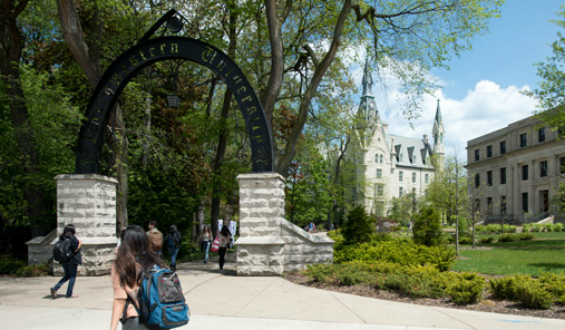
Northwestern University has announced plans to eliminate loans for its incoming students and instead provide scholarships for undocumented immigrants who have graduated from high schools in the United States.
As of next fall, incoming freshman will only be offered financial aid in the form of grants, scholarships, summer earning expectations, and work-study job offers. According to the school, the new initiative was created in an effort to allow students to graduate without massive amounts of debt, reports Lewis Lazare for The Chicago Business Journal.
The new initiatives were announced in an email by University President Morton Schapiro and Provost Daniel Linzer, including all-grant financial aid packages, placing a cap on need-based loans for current students at $20,000, scholarships for undocumented students funded by the school, and an increase in financial aid for international students.
Funding for the increase in aid is expected to come from gifts and other endowment earnings, as well as additional sources. The school’s “We Will” campaign has already provided $147.2 million to the scholarship effort. University spokesman Al Cubbage said the gifts will help the school because they will be set aside for an endowed scholarship earning close to 5% each year much in the same way as a savings account does.
Financial aid for students at Northwestern has increased by 55% over the last five years. Close to $160 million is available for the 2016-17 school year. The goal is to have 20% of the total incoming class of 2020 be made up of Pell Grant-eligible students, who are typically U.S. citizens, are in financial need, and are currently enrolled in an eligible degree in college or career school. Close to 15% of the class of 2019 was made up of these students, writes Christine Farolan for The Daily Northwestern.
According to Amanda Walsh, president of the NU Quest Scholars Network, the “20 by 2020″ campaign was created after a proposal drafted for Associated Student Government Senate and Faculty Senate recommended that the school become more socioeconomically accessible.
“The goal of this reform and of many reforms … is to make sure socioeconomic status is not a disadvantage, to make sure there is no classism on campus,” the Communication senior said.
Walsh went on to say that the changes go back five or six years ago when Quest Scholars at NU was originally founded to become the only student group at the school with a focus on the issues of low-income and first generation students. She said the Quest Scholars’ “Money Matters” programming helped to create the recent changes, including speaker events, firesides and film screenings that center around low-income student issues.
“One of the reasons these changes are so important … is that they prove that the administration is listening and cares about its marginalized students,” Walsh said. “It’s an incredible step in the right direction that shows this university cares about its students and wants them to succeed no matter their social identity.”
The changes are also expected to help graduate students with increased stipends, emphasizing financial aid for those studying in the areas of law, business, or medicine.




